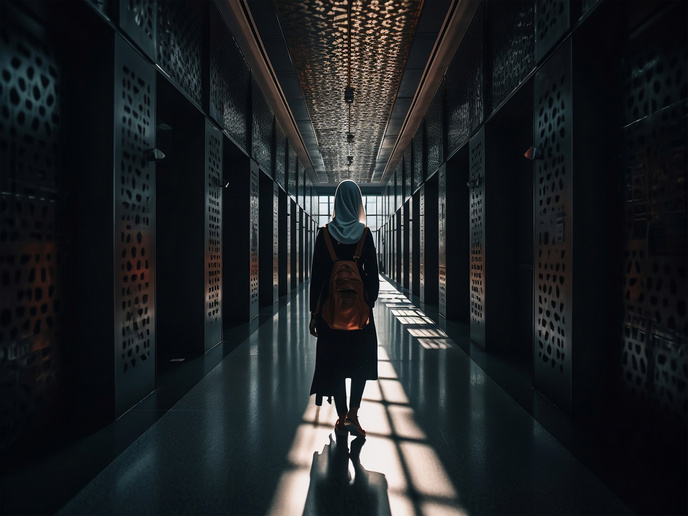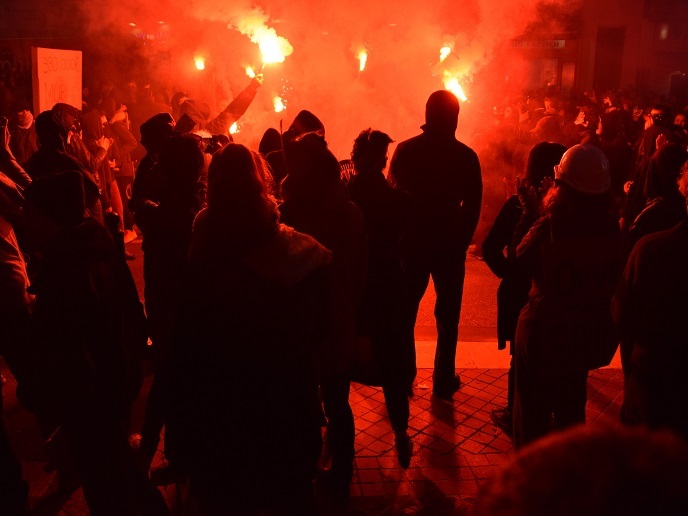An empathetic approach to youth radicalisation in Europe
During the last decades, we find ourselves at a historical juncture marked by the escalation of ethnocultural and religious tensions in the EU, hit by two substantial crises, namely the global financial crisis and the refugee crisis. The ERC-funded ISLAM-OPHOB-ISM project utilised a single optical lens to analyse the factors and processes behind the radicalisation of two groups of European youths: the natives who support movements labelled as far-right and the migrant-origin self-identified Muslims. Across 2 interview rounds scheduled in 2020 and 2021, the research team conducted 307 interviews in 4 European countries: Belgium, Germany, France and the Netherlands. Native interlocutors were chosen from middle-sized to large towns away from metropolitan capital cities (Aalst, Dresden, Ghent, Lyon and Rotterdam) and self-identified Muslim interlocutors from capital cities (Amsterdam, Berlin, Brussels and Paris). “As a starting point, the project problematised the neoliberal political tendency to criminalise and pathologise radicalisation by reducing the concept to extremism and terrorism,” explains principal investigator Ayhan Kaya. “Contrary to this understanding, many youngsters are prone to non-violent radicalisation resulting from a deeper search for reflexive awareness,” argues postdoctoral researcher Metin Koca.
Understanding reactionary radicalism
According to the findings of ISLAM-OPHOB-ISM, those who feel neglected, excluded, marginalised, alienated and forgotten are likely to manifest a reactionary form of radicalisation that is often exploited by anti-systemic political and societal formations such as right-wing populist parties and movements. One of the most surprising results seems to be that the density of Islamophobic discourse was much less than expected. The focus of the native youths was mostly on the socioeconomic, political, spatial and nostalgic forms of deprivation that they experience in everyday life. “The most effective deradicalisation strategy would be to create programmes that reduce the anger and anxiety caused by marginalising factors like unemployment and discrimination,” suggests postdoctoral researcher Ayşe Benevento. Another remarkable result was the realisation of how much all interlocutors appreciated talking about their everyday lives and communicating with the researchers about the hardships they experienced. The latter are mostly related to different forms of intersectional discrimination, labelling, framing, exclusion, discrimination, stigmatisation, inequality and humiliation. Both groups of youngsters appreciated the chance to share feelings and perceived discrimination. This prompted the researchers to start actively listening by creating the hashtag #LendThemYourEars. Through this hashtag, young people could share their thoughts and feelings with the public via the project's Twitter account.
Solidifying research findings for an effective deradicalisation process
Based on the rich corpus of publications the project has produced, the team has prepared policy recommendations for actors such as the EU, national governments, local and regional administrations, non-governmental organisations, civil society and media organs. One of the most important reasons for radicalisation among youth groups, according to project findings, is the fact that many state actors no longer invest in the formation of cultural, youth and community centres where young people can express their anger, anxiety, frustration and resentment through aesthetic forms of expression, or sports facilities. Since all radicalisation is local, the central and local state actors and relevant civil society organisations should prioritise the formation of third spaces where young people from diverse backgrounds can communicate with each other, and invest in the practices of collaboration, co-creation, communication, dialogue, and active citizenship. There is a need for popular culture, arts, music, dance, performativity and sports activities that bring young people together to communicate with each other. They could express their feelings of alienation and structural 'outsiderism' not through destructive means, but through creative forms such as music, dance, graffiti, painting, and sports. To this end, ISLAM-OPHOB-ISM aspires to engage civil society organisations, universities, schools and municipalities.
Keywords
ISLAM-OPHOB-ISM, extremism, discrimination, youth radicalisation, far-right, deradicalisation, Muslim youth, European youth, Islamophobic







